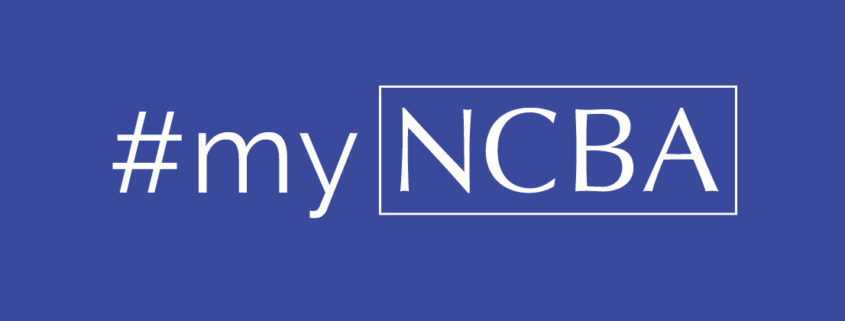#myNCBA: The New Way To Share Social Media Love
We want to let the world know what the NCBA means to you. So, we’ve created a new hashtag – #myNCBA – that will allow all of us to share thoughts, feelings and photos about this fellowship we know as the N.C. Bar Association.
Whether it’s grabbing coffee with another member, working with a group on a pro bono project or attending a CLE and loving the auditorium music playlist, we want to know what makes the NCBA special for you.
Here’s how it works: Include the hashtag #myNCBA in your social media posts on Facebook, Twitter, Instagram and LinkedIn. Anyone else who has a public social media account and uses #myNCBA will be automatically shown all other public posts that include the hashtag. And you can find fellow members’ posts with #myNCBA, too.
Share all the events, memories and interactions that make your NCBA membership meaningful to you. During the month of September, show us your NCBA moments with #myNCBA for a chance to win a weekly prize. For example, post a photo of one of your favorite speakers from this year’s Annual Meeting with a caption telling us why you enjoyed the speaker and include #myNCBA.
Each week every post that includes #myNCBA will be entered into a prize drawing. So tell us about your favorite Annual Meeting, section networking event, member event, or anything else NCBA-related that brings a smile to your face. We can’t wait to see what makes your membership in NCBA special to you!


 By
By